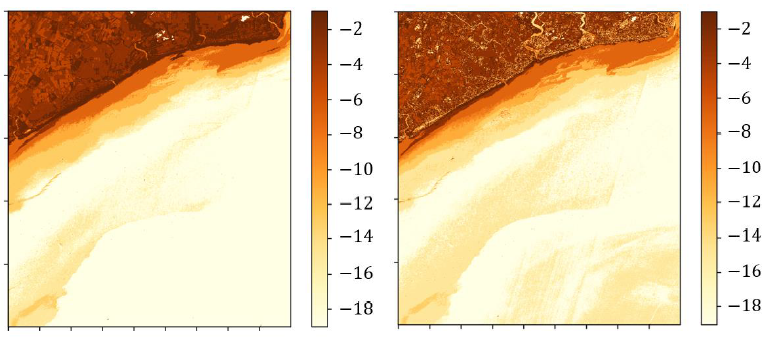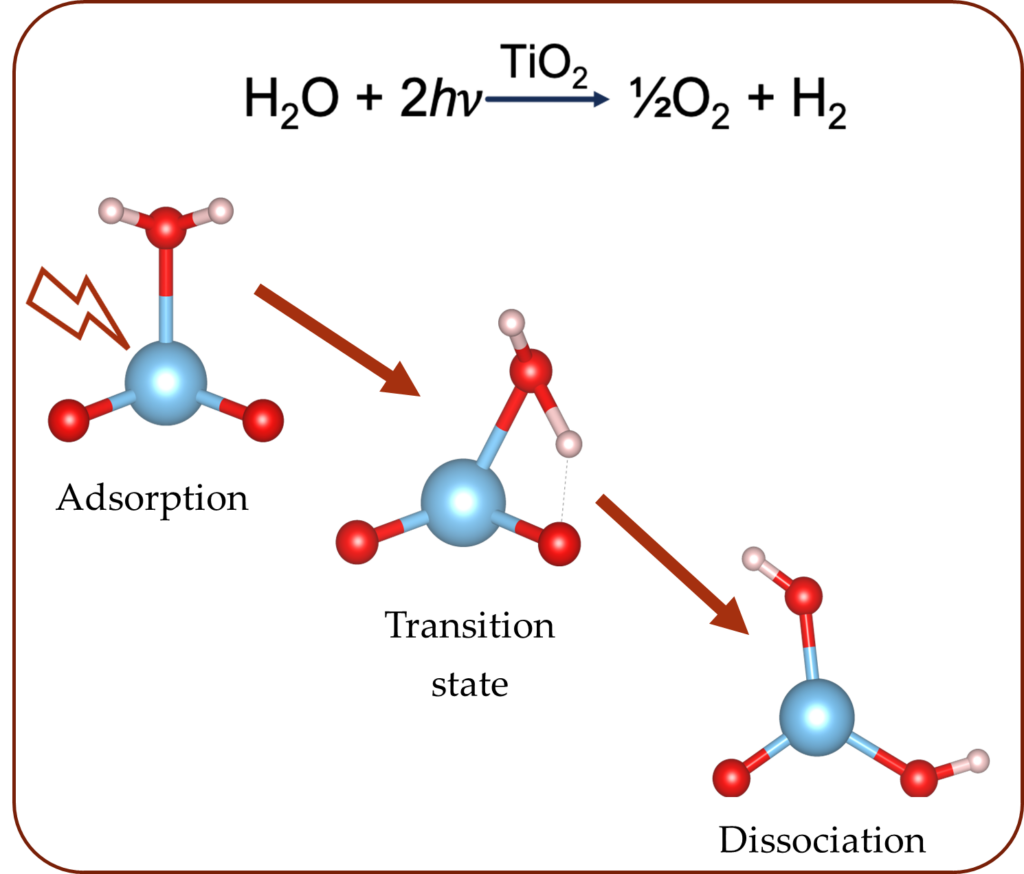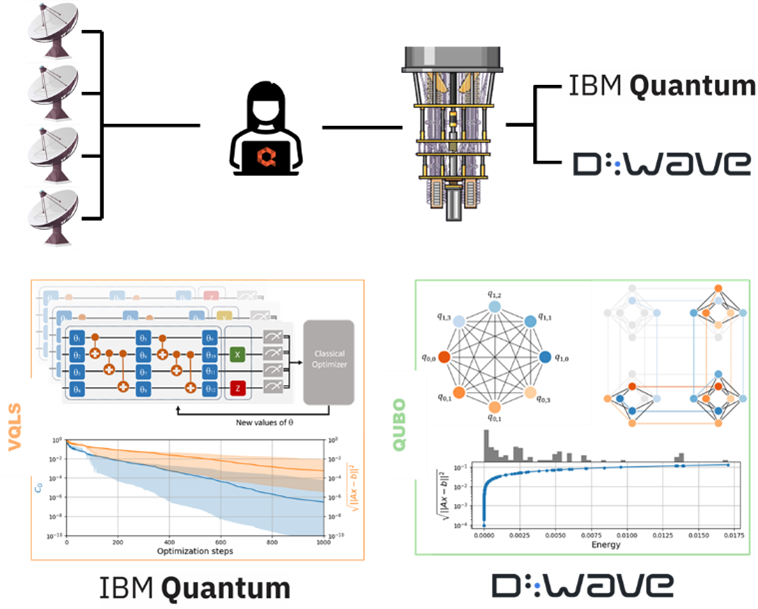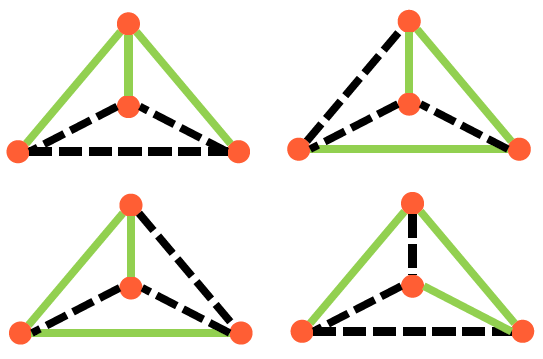The Problem
Bathymetry is the study of water depths and at S[&]T this is done through the analysis of remote sensing data. This is relevant to the Dutch Ministry of Defense for collecting situational intelligence to determine potential landing sites for amphibious crafts. The depth of ocean floors between 0 and 20m is derived from large amounts of multispectral satellite data, using advanced machine learning algorithms. The data consists of 13 spectral bands with a temporal resolution of 5 days and spatial resolution between 10 and 60m, leading to an incredibly large amount of data, that becomes intractable for classical methods.
The Quantum Solution
Quantum neural networks have the potential to arrive at high accuracies using small amounts of data, as it has been shown that quantum machine learning algorithms can generalize well from few data1. The downside is the difficulty in loading large data sets onto a quantum processor. To take full advantage of quantum hardware, a classical dimensionality-reduction was used to reduce the high spectral dimensionality of the available data, after which the data was embedded in a variational quantum classifier to classify the data into depth intervals.

Classically predicted water-depths off the coast of Venice on the left, and water-depths predicted using a quantum simulator on the right.
The Benefits
The quantum algorithm was run on a 4-qubit simulator, tested on real multi-spectral data over a region near the Mediterranean Sea, with promising results. As demonstrated in the figure below, the variational quantum classifier achieved high accuracies for the ocean depth. We managed to faithfully reproduce traditional (classical machine learning) results as a first step toward exploring the benefits of quantum. In the process of working out the use case, we gained additional insights into ways to improve the classical solution as well.
Links
Ref: [1] Generalization in quantum machine learning from few training data | Nature Communications
Link to the PENNYLANE blog and code : https://pennylane.ai/blog/2023/08/tno_quantum_variational_classifier_powering_ml_workflows_with_quantum/
This work is supported by the Dutch National Growth Fund (NGF), as part of the Quantum Delta NL programme



